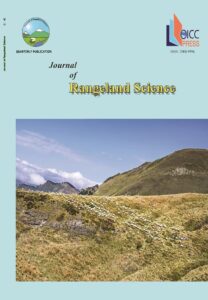Cassava Bran– Fish Processing Waste as Dry Season Feed Resources for Sheep in Nigeria Southern Guinea Savannah
Authors
- Akeem Babatunde Sikiru * 1, 2
- Mahmoud Baba Yousuf 1, 3
- Sadiq Gbolagade Ademola 4, 5
Abstract
Seasonal variability impact on livestock production and management stems from poor pasture quality and quantity as well as shortage of water. During wet season, there is usually sufficient quantity of pasture in good quality for animal consumption; but during dry season, there is always insufficient pasture as well as shortage of water for livestock consumption. As a result of these, exploration of resilience livestock production and management practices capable of enhancing animal performance during dry season becomes highly necessary. Based on the above background, a 12 weeks trial was carried out during January, February and March in 2015 to determine the effects of cassava bran plus fish processing waste supplement on body weight gain, blood composition and meat quality of West African Dwarf sheep at a location within Nigeria Southern Guinea Savannah. Twelve growing lambs were randomly allotted to three Treatments; each fed dried cassava peel ad-libitum in addition to 0%, 1.5%, or 2.5% body weight equivalent quantity of the cassava bran-fish processing waste supplement throughout the feeding trial. Sheep fed control (0%) diet had negative body weight change (P<0.05). Sheep fed cassava bran-fish processing waste supplement at 2.5% body weight level had higher (P<0.05) body weight, nutrient composition and carcass yield. Treatment effects on sheep organoleptic properties and meat fatty-acids composition were significant (P<0.05). Our study established that cassava bran and fish processing waste are potential dry season feed resources suitable for growing lambs since it has no negative impact on the health of the animals and it promote growth and performance of the animals. We recommend further studies into full integration and improvement of diets prepare from cassava bran and fish processing waste for sheep feeding during dry season; also investigation into possibilities of incorporating fish processing waste into production of silage for growing lambs.


